Event highlights
Primary care nurses in Asturias, Spain, are champions of a person-centred approach
One of the highlights of 2024 was the launch of the third WHO Primary Health Care (PHC) Demonstration Platform in Spain. In June 2024 a delegation from Czechia visited the Centro de Salud El Llano, one of the largest PHC centres in Gijón, which exemplifies Spain’s strong PHC model and serves as an inspiration for other countries eager to learn from its success.
The Principality of Asturias, located in northwest Spain and home to around 1 million residents, is notable for its high investment in PHC, which demonstrates a strong political commitment to health. With an ageing population – 27% of inhabitants are over 65 years of age – Asturias is a leader in innovations to meet the needs of chronic, complex patients through PHC. The region also excels in community health by promoting collaboration between PHC and public health services, and through its extensive network of PHC centres that serve residents in its mountainous and sparsely populated areas.
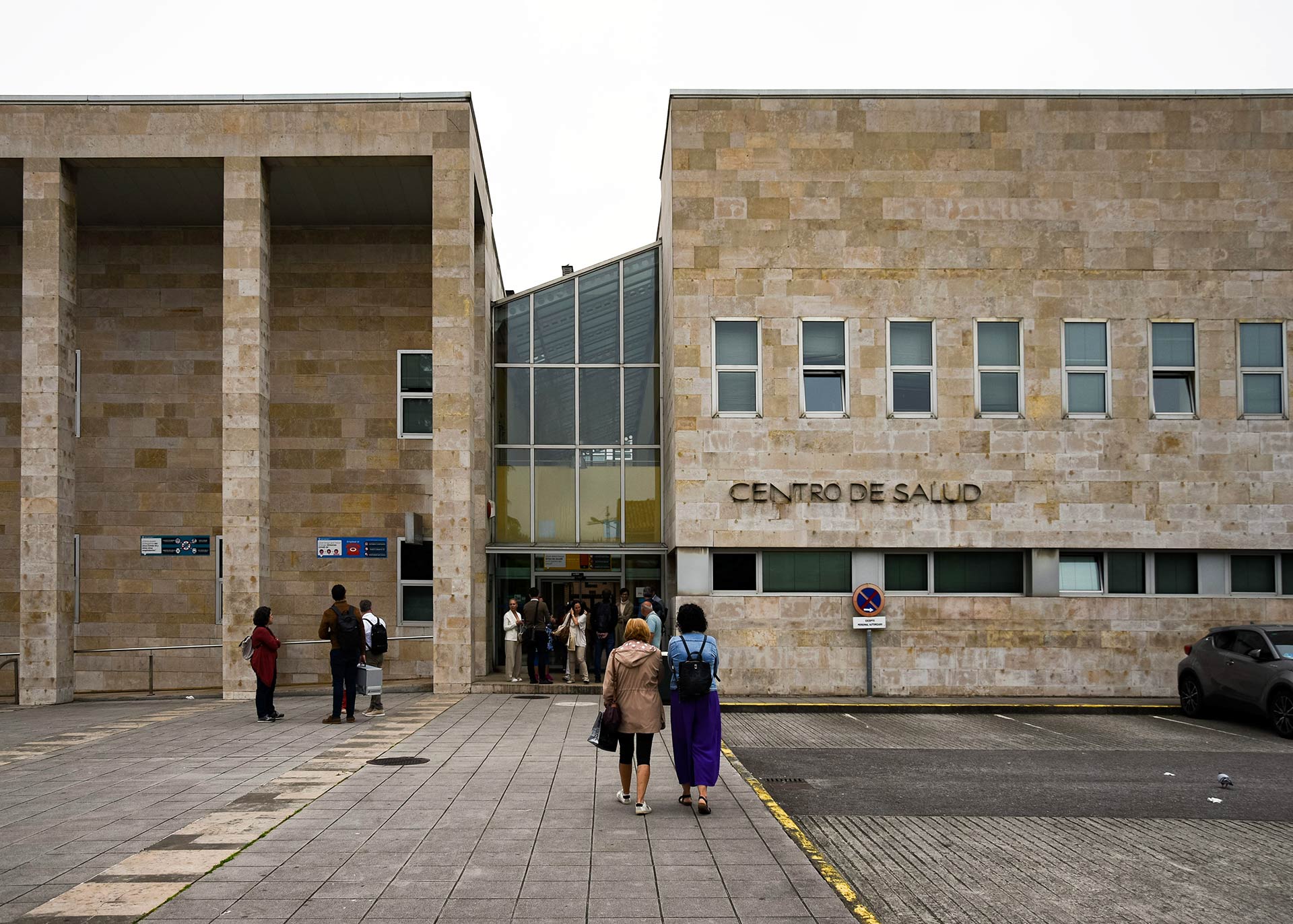
The Centro de Salud El Llano in Gijón, Principality of Asturias, Spain
The Centro de Salud El Llano, staffed by a multidisciplinary team of 65 PHC professionals, serves a catchment area with a population of about 26 000. This team includes 17 doctors, 17 nurses, 1 social worker, 3 paediatric doctors, 3 paediatric nurses, a dentist, a dental hygienist, a physiotherapist, a midwife, administrative staff, 2 nursing assistants and management personnel.
Family medicine doctors and PHC nurses form the backbone of the team, serving as primary points of contact for approximately 1500 adults each to ensure relational continuity of care.
Paediatricians and paediatric nurses take on these roles for children up to the age of 14. The centre also provides 24-hour PHC services, including out-of-hours emergency care. It is 1 of only 3 Gijón facilities offering comprehensive, around-the-clock services.
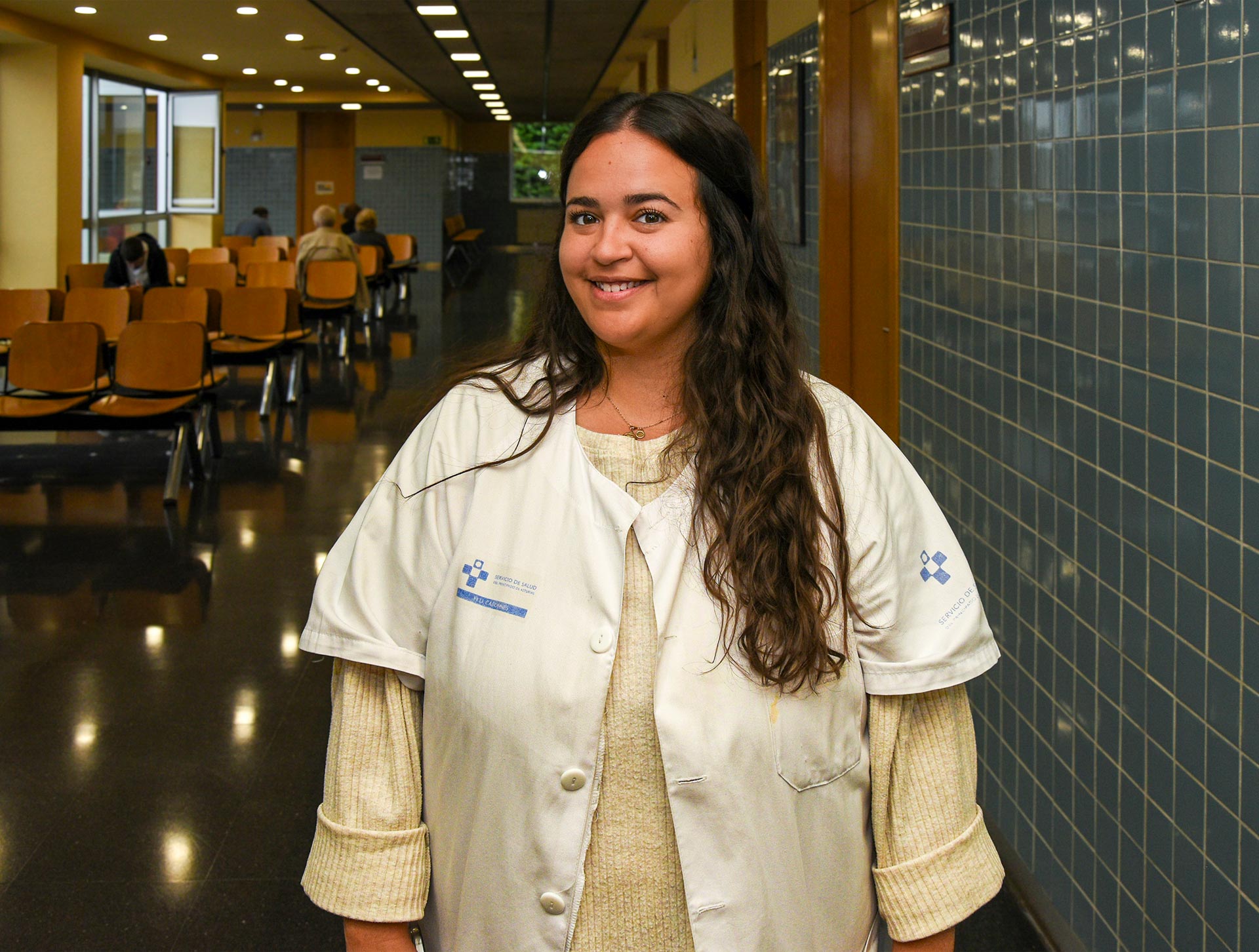
Andrea Garcia Prado, a nurse at the Centro de Salud El Llano
Originally from Asturias, Andrea got her nursing degree in León before working in Oxford, United Kingdom, focusing initially on emergency care. Since transitioning to PHC, she has developed a strong appreciation for its role, particularly in preventing hospitalizations. She understands the importance of collaboration between hospitals and PHC to ensure seamless health-care delivery.
“After completing my 4-year nursing degree, I passed a challenging exam that allowed me to undertake a 2-year residency to become a family and community nursing specialist. This specialization is vital for enhancing nursing skills, not only in clinical practice but also in community health, research and leadership,” Andrea explains.
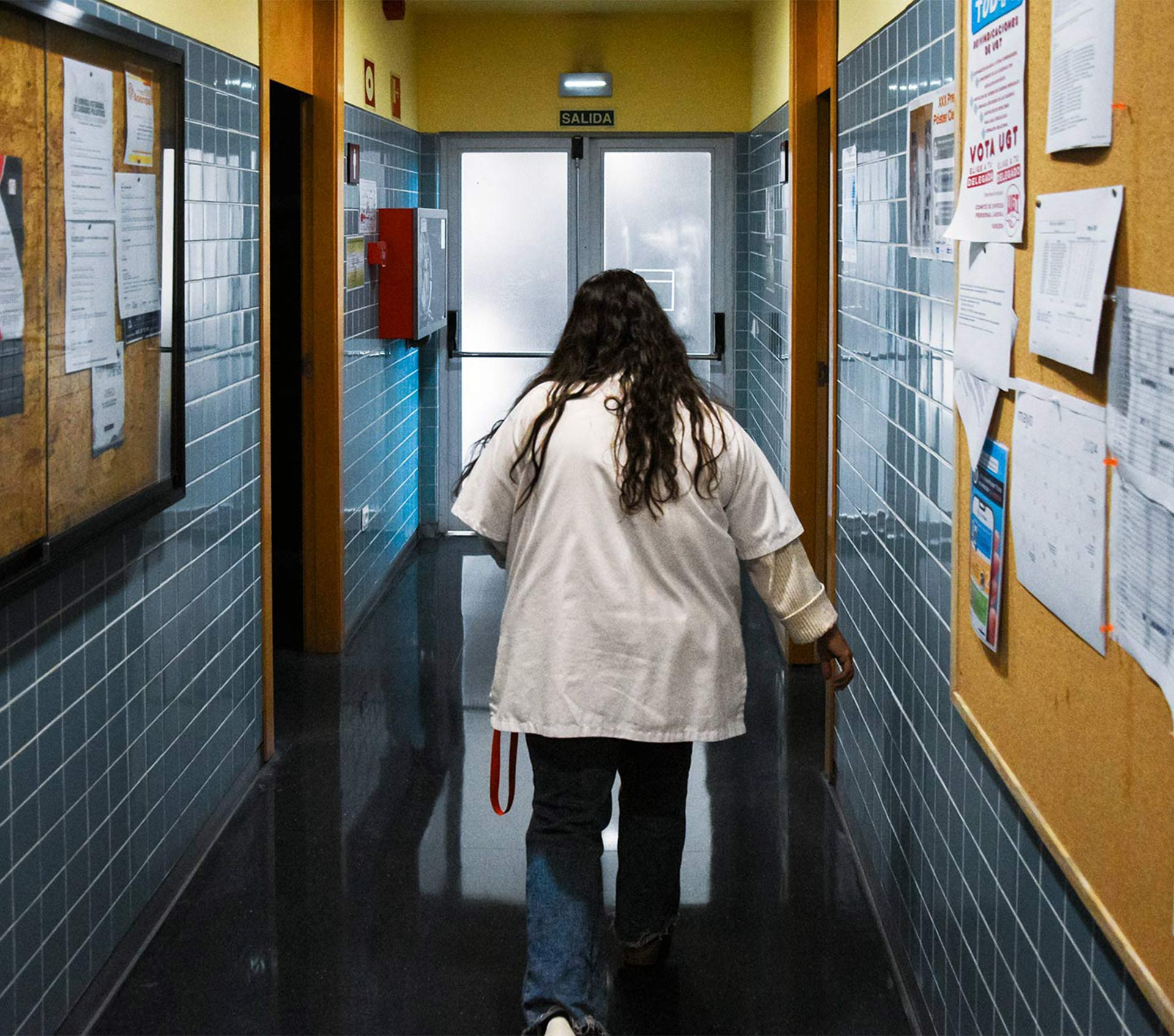
Andrea walks through the centre's corridors, beginning her day
Nurses play a crucial role in following up on patients with chronic conditions with a focus on promotion and prevention. Responsibilities include various protocolized activities such as hypertension control, exercise and diet counselling, tobacco cessation, diabetes control, and wound care.
Nurses also organize group activities in collaboration with other team members and communities, focusing on the social determinants of health. These may include group sessions to address psychosocial distress or walking tours for older patients who report loneliness.
A typical day involves having routine visits with chronic patients, providing wound care, addressing acute care needs including triage, and making scheduled and urgent home visits to patients with frailty and reduced mobility.
Reflecting on what she values most about her role at the centre, Andrea says, “I think autonomy is crucial from a nursing point of view. The autonomy we have in primary care is something we probably don’t experience in hospitals, where we don’t manage our patients or time. In primary care, I know what’s best for my patients and myself.”
Andrea adds, “Nursing is typically the first point of contact for all patients in primary care, including chronic patients, and we often understand their social background, personal history and family dynamics. Sometimes, patients don’t need to come in for a medical problem; they might just need to chat, empathize or receive sympathy. Getting to know them on a more personal level is what I like most about primary care.”
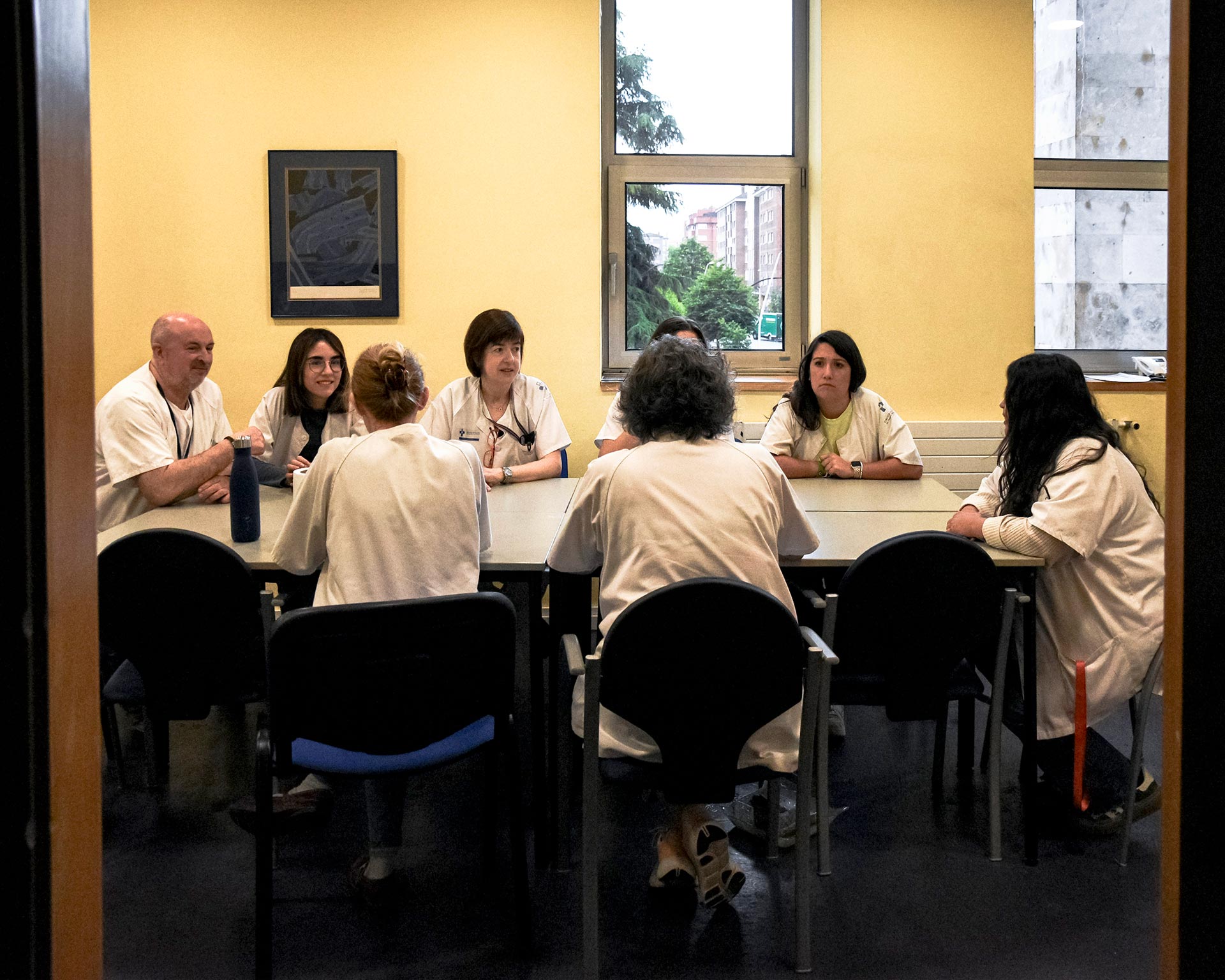
Andrea joins a regular team meeting
The nursing team works closely with family doctors to provide coordinated care for their shared patient group. This collaboration is particularly crucial for managing complex cases and facilitates joint appointments, reducing the need for separate visits with both the family doctor and the nurse.
When needed, the nursing team connects patients with other PHC team members, such as social workers, midwives or physiotherapists. If specialist care is required, patients are referred to the hospital with all relevant details documented in their digital health records to ensure seamless communication and follow-up.
The team regularly evaluates their progress towards priority health goals, identifying strategies to enhance quality and efficiency. Besides team meetings, there are also separate meetings for nurses and family doctors.
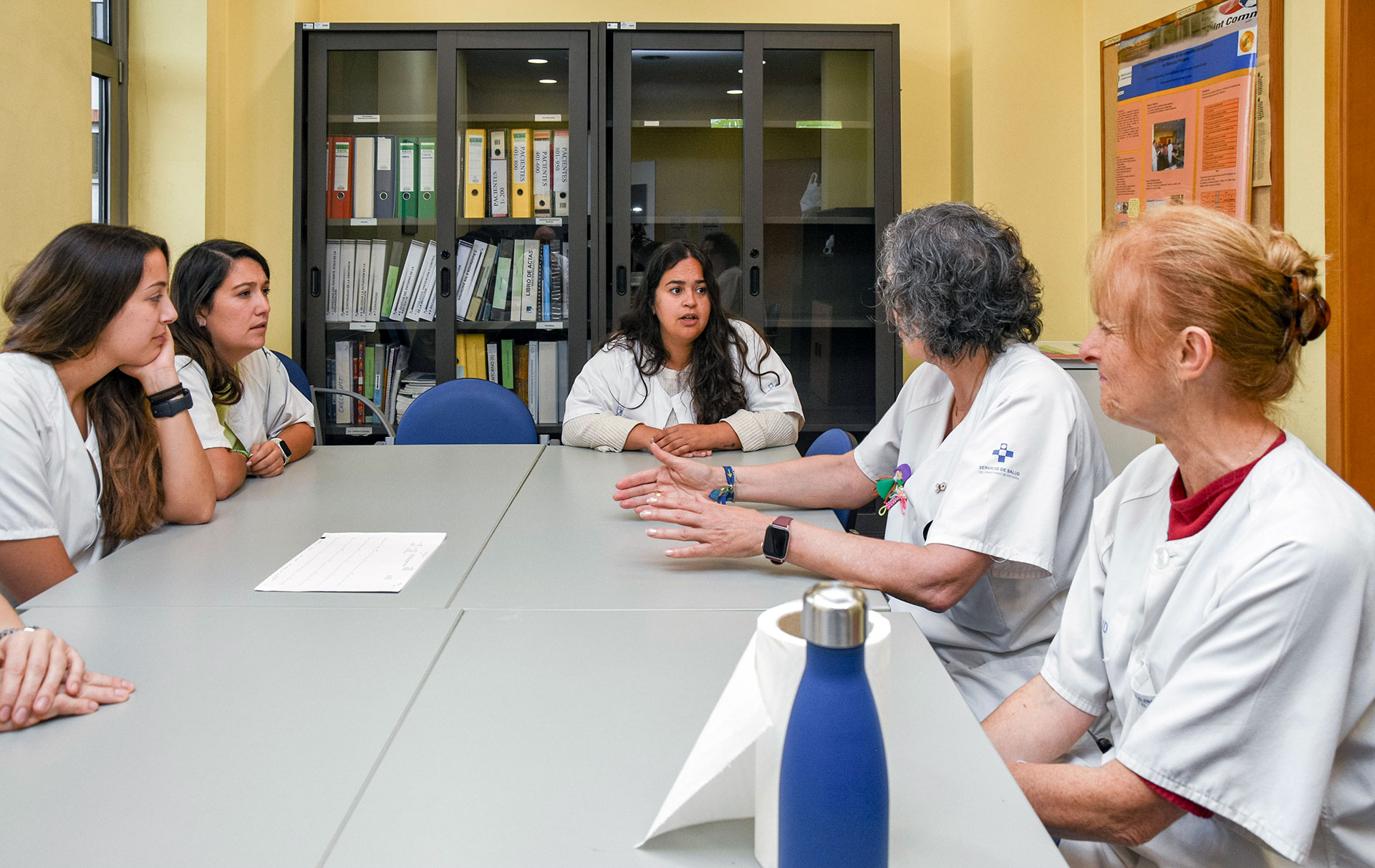
Andrea shares updates on patients during a team meeting with family doctors and the social worker
Social workers in PHC are essential in supporting patients and families, guiding them through the health-care system, and ensuring access to social services and community and municipal resources.
When a patient requires assistance from social services due to an inadequate home situation observed during a home visit, the nurse reaches out to the social worker, who conducts an assessment and follows up with the patient.
Collaboration between nurses and social workers is also paramount for addressing the needs of complex chronic patients with multimorbidity and frailty. They play an essential role in assessing holistically the clinical and social needs of these patients, and contribute to the development of an individualized care plan.
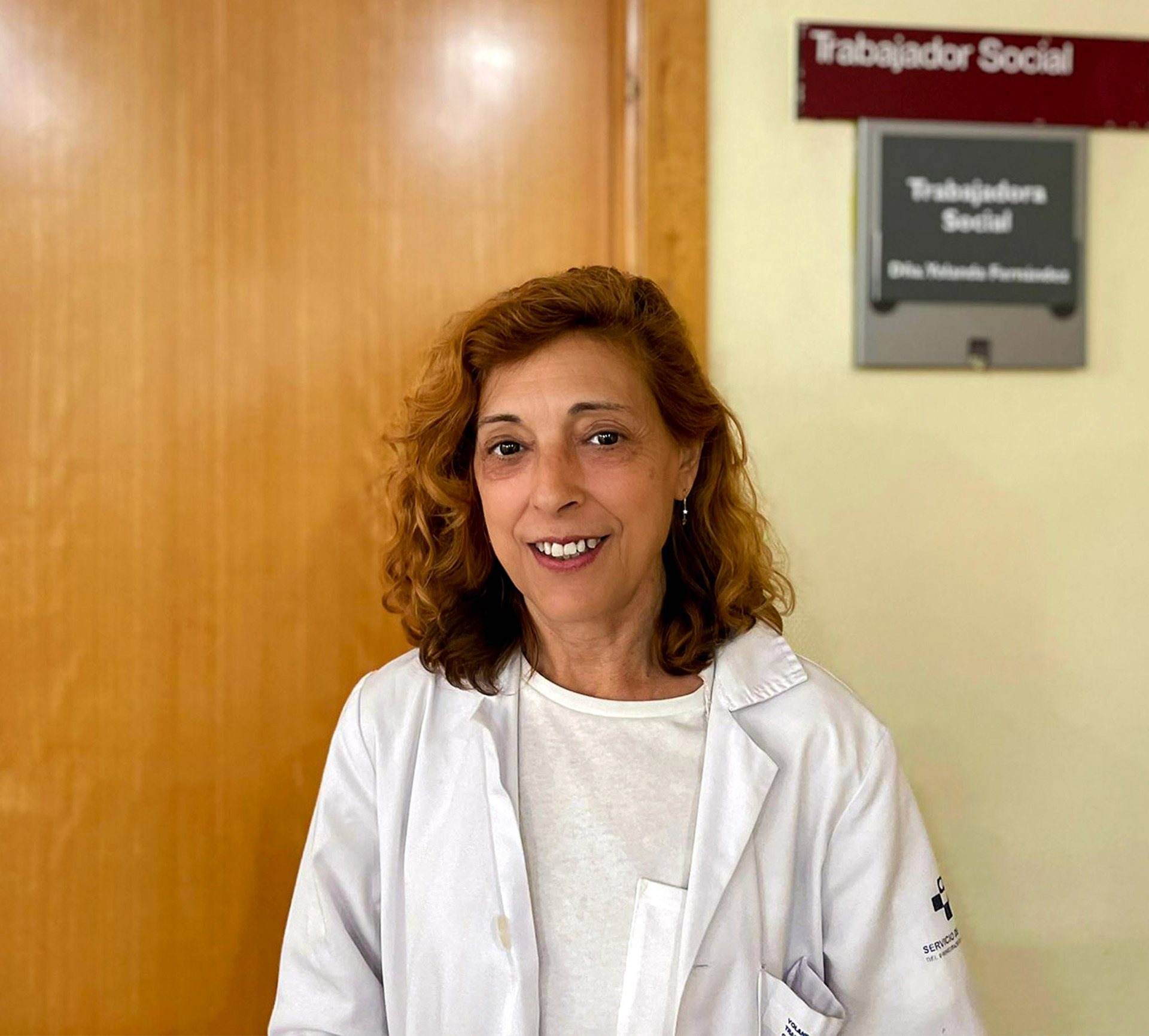
Yolanda Fernández, a social worker in Centro de Salud El Llano
“As a social worker, I help connect patients with various health resources available in the community, including municipal sports and cultural services, as well as support provided by nongovernmental organizations and civil society organizations,” Yolanda explains.
“These resources play a significant role in improving patients' health and well-being. I rely on an online repository of community health resources, which is regularly updated. The community itself identifies and recommends these resources, and they are validated by public health services to ensure they are accessible and relevant to the local population.”
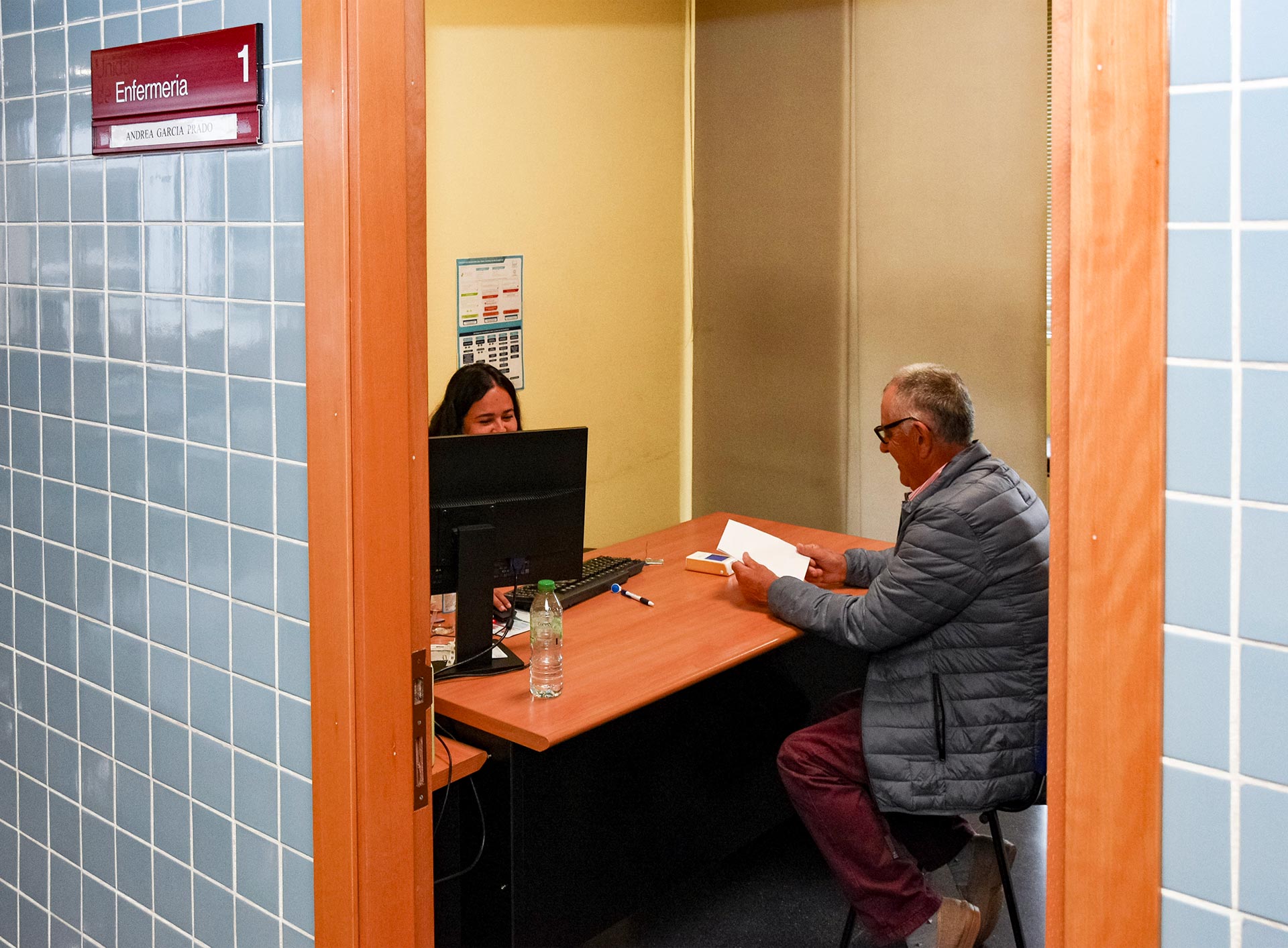
Andrea with a patient during a scheduled meeting
In Asturias, PHC nurses exemplify a holistic approach to well-being through person-centred care.
“Nicanor is a regular patient who visits every month for routine coagulation tests since he’s on anticoagulants that require close monitoring,” says Andrea. “We adjust his dosage based on the test results. Today, his results were perfect, so we updated his electronic medication schedule and set up his next appointment.”
She adds, “I also know his wife very well. When you’ve been here long enough, you really get to know your patients and their context. You can sense when they might need support or when there’s an issue they can likely resolve on their own, even if it’s not strictly medical.”
Event notice
As part of the WHO PHC Demonstration Platform, the Centro de Salud El Llano, one of the largest PHC centres in Gijón, will be hosting a delegation from Czechia in Spain.



